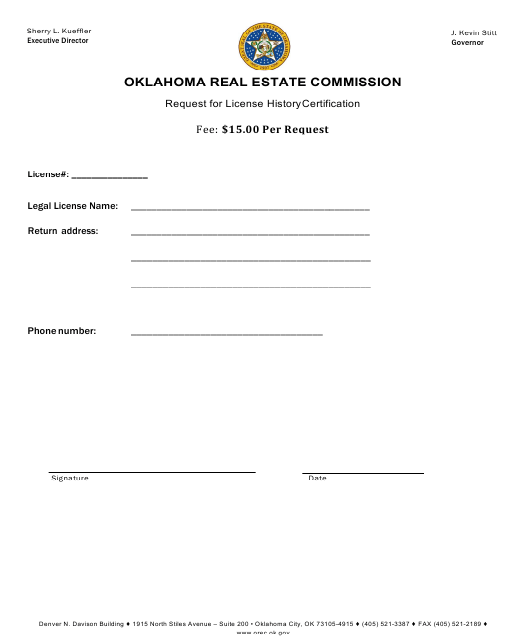
For anyone who is interested in a career within the realty industry, obtaining an Ohio license to sell real estate is a necessary step. It allows realty agents to both sell property and act in the capacity of brokers on behalf buyers and sellers. It ensures that every stakeholder benefits from sales.
Pre-licensing and broker sponsorship are two of the steps to getting your Ohio real estate license. This includes fingerprinting and background checks. After completing these requirements, your application can be submitted.
Ohio Real Estate Class Cost
Prelicensing classes in Ohio can be a great way to save money if you sign for a bundle. These bundles contain all the necessary tools to help you prepare for your ohio residential real estate exam. Some of these classes are more affordable than others, so it is a good idea to compare the prices and find a package that fits your needs.

Ohio Real Estate Exam (PSI)
PSI is the national company that administers Ohio's state licensing exams. They provide the Ohio real estate exam. You can schedule your exam online at the PSI website. There are two parts to the exam: one covering state and one covering national real estate laws and principles.
You must pass the exam with a minimum score of 70% to be eligible for your Ohio real estate license. The national portion of the exam covers general real-estate principles and laws while the state portion addresses specific Ohio areas.
State-Specific Practice Exam
The state-specific exam is a great tool to help you learn the basics of the state's realty laws and regulations. These practice exams are based on the laws in your state and are updated annually, so they can help you become more familiar with the material that will be on the real estate license exam.
Exam Tips: How To Pass the Ohio Real Estate Exam
You will need the 120-question and 120-minute Ohio real-estate license exam. This includes both the national and state sections. To help you prepare, you can use a study guide and a real estate test prep course that is tailored to the state's requirements.

How Hard is the Ohio Real Estate Exam?
The Ohio real estate licensing exam is very challenging and requires a high level of focus and effort. It's designed to be hard, but it's not impossible to pass your first attempt. However, if you study diligently and apply the required knowledge, it is possible to pass.
The test vendor will send you your exam score immediately after the testing session. It will be marked "pass" or "fail." If you fail, you can retake the test at a discounted price.
How to Retake Ohio Real Estate Exam
If you submit your retake form within one calendar year of failure, you will be eligible to retake the Ohio real property exam for free. You can even retake the exam multiple times with different exam dates and times to avoid long waits in the test center.
FAQ
Should I rent or own a condo?
If you plan to stay in your condo for only a short period of time, renting might be a good option. Renting will allow you to avoid the monthly maintenance fees and other charges. The condo you buy gives you the right to use the unit. The space is yours to use as you please.
How do I eliminate termites and other pests?
Termites and many other pests can cause serious damage to your home. They can cause serious damage to wood structures like decks or furniture. This can be prevented by having a professional pest controller inspect your home.
How can I calculate my interest rate
Interest rates change daily based on market conditions. The average interest rate over the past week was 4.39%. Divide the length of your loan by the interest rates to calculate your interest rate. For example, if $200,000 is borrowed over 20 years at 5%/year, the interest rate will be 0.05x20 1%. That's ten basis points.
Statistics
- The FHA sets its desirable debt-to-income ratio at 43%. (fortunebuilders.com)
- This means that all of your housing-related expenses each month do not exceed 43% of your monthly income. (fortunebuilders.com)
- When it came to buying a home in 2015, experts predicted that mortgage rates would surpass five percent, yet interest rates remained below four percent. (fortunebuilders.com)
- It's possible to get approved for an FHA loan with a credit score as low as 580 and a down payment of 3.5% or a credit score as low as 500 and a 10% down payment.5 Specialty mortgage loans are loans that don't fit into the conventional or FHA loan categories. (investopedia.com)
- Some experts hypothesize that rates will hit five percent by the second half of 2018, but there has been no official confirmation one way or the other. (fortunebuilders.com)
External Links
How To
How to Manage A Rental Property
Although renting your home is a great way of making extra money, there are many things you should consider before you make a decision. We'll help you understand what to look for when renting out your home.
Here are the basics to help you start thinking about renting out a home.
-
What should I consider first? Consider your finances before you decide whether to rent out your house. If you have any debts such as credit card or mortgage bills, you might not be able pay for someone to live in the home while you are away. You should also check your budget - if you don't have enough money to cover your monthly expenses (rent, utilities, insurance, etc. You might find it not worth it.
-
How much does it cost to rent my home? It is possible to charge a higher price for renting your house if you consider many factors. These factors include the location, size and condition of your home, as well as season. You should remember that prices are subject to change depending on where they live. Therefore, you won't get the same rate for every place. The average market price for renting a one-bedroom flat in London is PS1,400 per month, according to Rightmove. This would translate into a total of PS2,800 per calendar year if you rented your entire home. Although this is quite a high income, you can probably make a lot more if you rent out a smaller portion of your home.
-
Is it worth it. It's always risky to try something new. But if it gives you extra income, why not? Before you sign anything, though, make sure you understand exactly what you're getting yourself into. Renting your home won't just mean spending more time away from your family; you'll also need to keep up with maintenance costs, pay for repairs and keep the place clean. You should make sure that you have thoroughly considered all aspects before you sign on!
-
Are there any advantages? It's clear that renting out your home is expensive. But, you want to look at the potential benefits. You have many options to rent your house: you can pay off debt, invest in vacations, save for rainy days, or simply relax from the hustle and bustle of your daily life. It is more relaxing than working every hour of the day. If you plan ahead, rent could be your full-time job.
-
How can I find tenants? Once you've decided that you want to rent out, you'll need to advertise your property properly. Listing your property online through websites like Rightmove or Zoopla is a good place to start. Once potential tenants contact you, you'll need to arrange an interview. This will help you assess their suitability and ensure they're financially stable enough to move into your home.
-
How do I ensure I am covered? You should make sure your home is fully insured against theft, fire, and damage. You will need to insure the home through your landlord, or directly with an insurer. Your landlord will typically require you to add them in as additional insured. This covers damages to your property that occur while you aren't there. This doesn't apply to if you live abroad or if the landlord isn’t registered with UK insurances. In this case, you'll need to register with an international insurer.
-
Even if your job is outside the home, you might feel you cannot afford to spend too much time looking for tenants. You must put your best foot forward when advertising property. Post ads online and create a professional-looking site. It is also necessary to create a complete application form and give references. Some people prefer to do the job themselves. Others prefer to hire agents that can help. It doesn't matter what you do, you will need to be ready for questions during interviews.
-
What happens once I find my tenant If there is a lease, you will need to inform the tenant about any changes such as moving dates. If you don't have a lease, you can negotiate length of stay, deposit, or other details. Keep in mind that you will still be responsible for paying utilities and other costs once your tenancy ends.
-
How do you collect rent? When the time comes for you to collect the rent you need to make sure that your tenant has been paying their rent. If they haven't, remind them. You can subtract any outstanding rent payments before sending them a final check. If you're having difficulty getting hold of your tenant you can always call police. They won't normally evict someone unless there's been a breach of contract, but they can issue a warrant if necessary.
-
What can I do to avoid problems? Renting out your house can make you a lot of money, but it's also important to stay safe. Make sure you have carbon monoxide detectors installed and security cameras installed. Make sure your neighbors have given you permission to leave your property unlocked overnight and that you have enough insurance. You should not allow strangers to enter your home, even if they claim they are moving in next door.